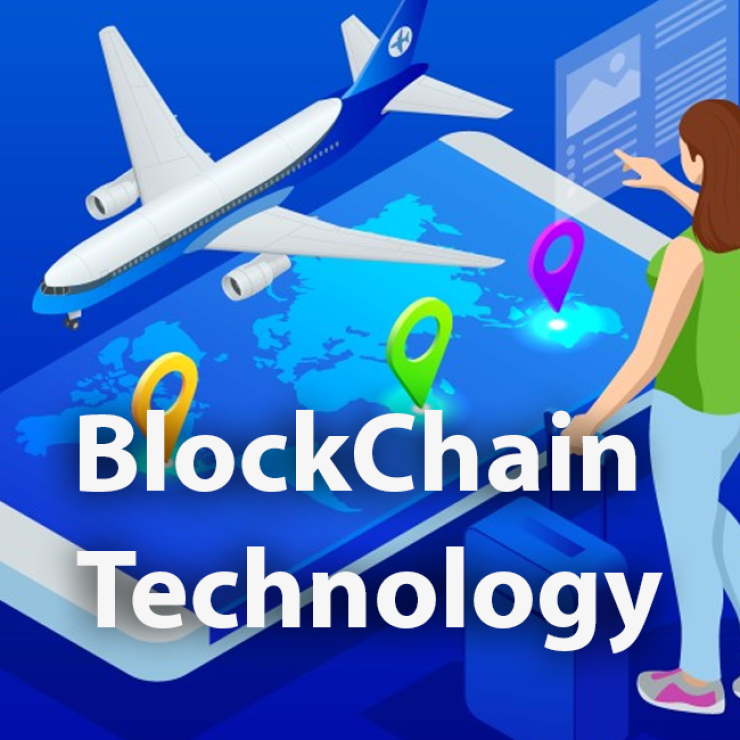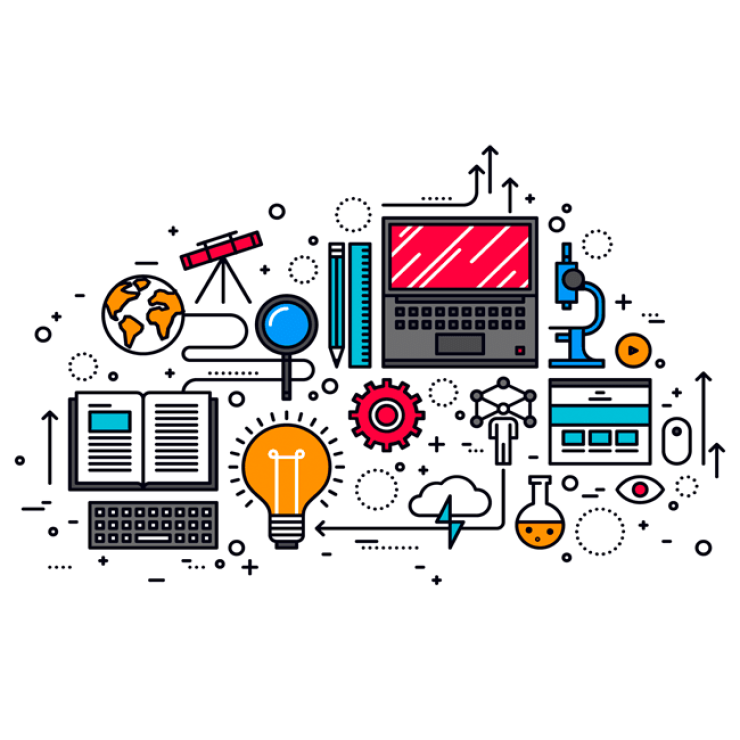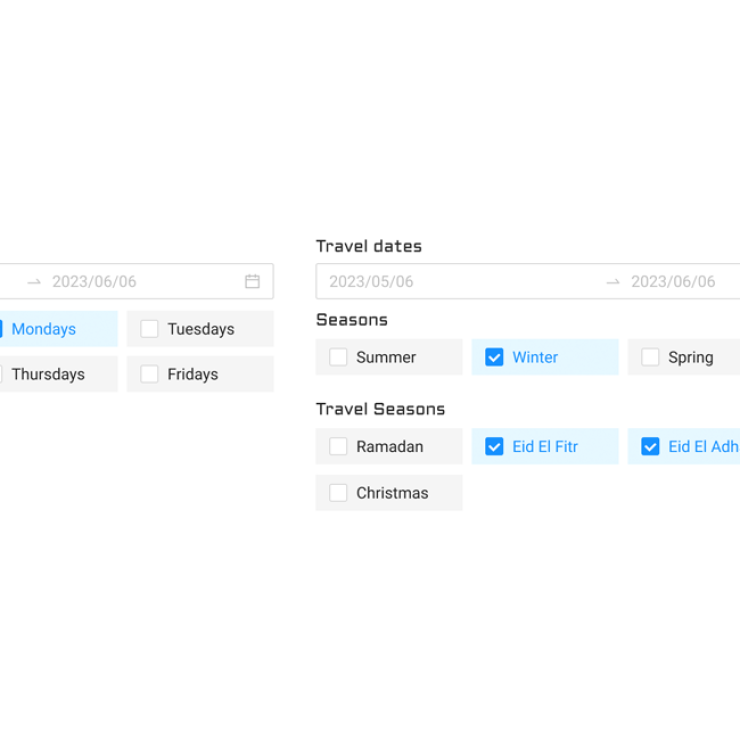Brief
Artificial intelligence and generative AI is going to impact the travel businesses in both good and bad ways, good for the consumers and for those who adapted technology and started the digital transformation journey and started to sell their travel products digitally through an online travel agency (OTA) of course will have a better chance adapting these new generative AI leap forward and create a positive impact for their customers, at the same time it will be very bad for those who didn’t, and they are going to have a very hard time, if they didn’t listen, adapt and start acting asap, these will be left behind by consumers, before they are left by technology.
What is technology?
Before taking any steps forward, we need to understand what is technology? Technology is how humans are utilizing science to make our lives easier and enable us to do things faster. Thanks to the invention of computers we are now able to
- Communicate at a lightning fast speeds
- Automate repetitive tasks
Which in both we are getting better at it. Everyday we think of and invent new ways to make communication and automation smarter, faster and easier for us. So that’s how we can interpret the ultimate goal of technology.
Digital first world
It’s not only about travel. Not so far ago, traditional retailers faced many challenges transitioning to ecommerce and adapting to the digital first world, and they are still running after the digital first giants, such as amazon, alibaba etc… and the same applies for the Online Travel dominants like expedia, booking, etc..
Myself among other tech. Enthusiasts have always preached this transition to friends, and business owners maybe 15, or even 20 years ago, unfortunately very few have listened. And here we go again, would you listen this time?
It’s all about people
When Tech enthusiasts like myself talk about Tech solutions that we can provide, people think that we are after their pockets, this is half the truth :).
Honestly, due to our experience with tech, and the digital commerce world, we are capable of seeing things that not necessarily can be seen by everyone.
Again, what I see is not the technology, at the end technology are tools, But I can see the impact on people, how interactions are changing, and how this changes affects commerce transactions, and how the customer journey would change to accommodate the people’s aspirations and expectations.
Customer expectations
Not far ago, customers expected to make transactions online through an app or a website and it just happens, as simple and easy as it sounds.
This includes travel bookings and arrangements, so when you think of a trip, you go to booking.com, airbnb.com or expedia.com and make it happen instantly, no phone calls or any human interaction needed, That made sense, no body likes to be kept on hold until agents answer them with the itinerary prices or, even worse until agents read their email may be 2 hours later, or sometimes the next business day.
Invention led to another one
Pushed by innovation and customer’s expectations, and due to the popularity of OTAs, it led us to the concept of meta-search engines where we can make simultaneous searches in multiple online travel agencies so we can compare between the prices of the same hotel or ticket from different OTAs, and choose between their offerings. This was a huge win for the consumers, it is way easier, faster and it may as well save a few bucks. So it had a huge positive impact on consumers, they liked it very much, so it dominated.
That’s why meta-search engines like skyscanner, wego or kayak are making more traffic than any other online travel agency.
People always preferred technology, that’s why more than 80% of the travel bookings are either made or planned through online channels.
Tomorrow Today is different
That was all in the past. Thanks to chatGPT, Google’s Gemeni, and generative AI technology, consumer’s expectations have changed.
They expect to chat with a Travel AI bot that is smart and capable of recognizing their speech, fully understanding their needs, and reply back with a result.
The new normal
Consumers are expecting to open an app, with a one button, tap this button and speak, they expect to say something, like
– “Hey, book me a flight to Riyadh, next Tuesday I will be staying in Riyadh for 3 nights”
— “Do you want to book a hotel as well? Or just a flight?
– “No I will stay at a friend’s home, just book the flight.”
— “Are you traveling for business?”– “Yes, I’m attending a business conference”
Through this conversation, the Travel AI agent, will be able to tell that there is 1 adult traveling from NYC to RUH departing 12-DEC-24 and returning 16-DEC-2024 for example and is not looking to book a place to stay, also that he is traveling for business.
It will be able to come back and say
— “Hey, I found a few business classes, starting at $4000 and economy starting at $1200, how would you like to proceed?
– “Business”
It will then show the flight options for you to choose from, Consumer then will be able to choose and proceed with his booking.
This kind of interaction has endless possibilities. All in all, it’s easier, way more convenient, and take much less time than the traditional searches
Personalization
We will start feeding this data to the system, train the AI agents to understand each customer’s behavior, preferences that would make it able to predict your interactions, and make it smarter and easier.
Start acting NOW
You think you have a choice, NO YOU DON’T.
Technology will take over as it always did. No one can stop technology. The only option we have is to adapt and embrace technology, that’s what we learn from history. You are not an exception. If your travel business will not adapt and embrace the new era of AI. You are simply out, your business will be left behind and people will always prefer easier and smarter solutions as they have always did.
How do you start?
You need to revisit your business model, if you have an existing OTA, then good for you, you need to implement the new customer journey and put it to your customers asap. If you don’t have an OTA, You need one.
Challenges
When I think of the challenges, I genuinely think of customer’s privacy and cybersecurity.
Privacy
We are still in the early stages of adapting to this technology, human civilization has never seen something like this before.
Governments and laws
We are going to have a lot of challenges, on all the levels, governments have to act and create the laws, that works on user’s privacy protection, this kind of laws are already in the work by the EU, US and some other governments.
Organizations and businesses
I think organizations have to start with customer’s privacy in mind, and build their solutions around it.
They need not to forget that the user’s information and data belongs to them and they have every right to give or deny that access to the organizations.
Organizations needs to give the user’s access to
- Receive a copy of their information
- Delete their interactions permanently from the system. (that’s not an easy one)
Cyber security
As AI is getting way more advanced is a good thing, like every other tool it can be used for the bad as well. I’m sure Hackers will utilize these tools to find the system’s weaknesses and try to penetrate it, to get unauthorized access to these databases and systems.
It will get even more challenging for Organizations to harden their security protocols, and add more security layers to their systems. To try to prevent this kind of threats.
MORE: Below are some of the many AI applications to business travel processes I heard about from key companies on the convention floor.
https://skift.com/2024/07/26/7-ways-ai-is-changing-business-travel/



